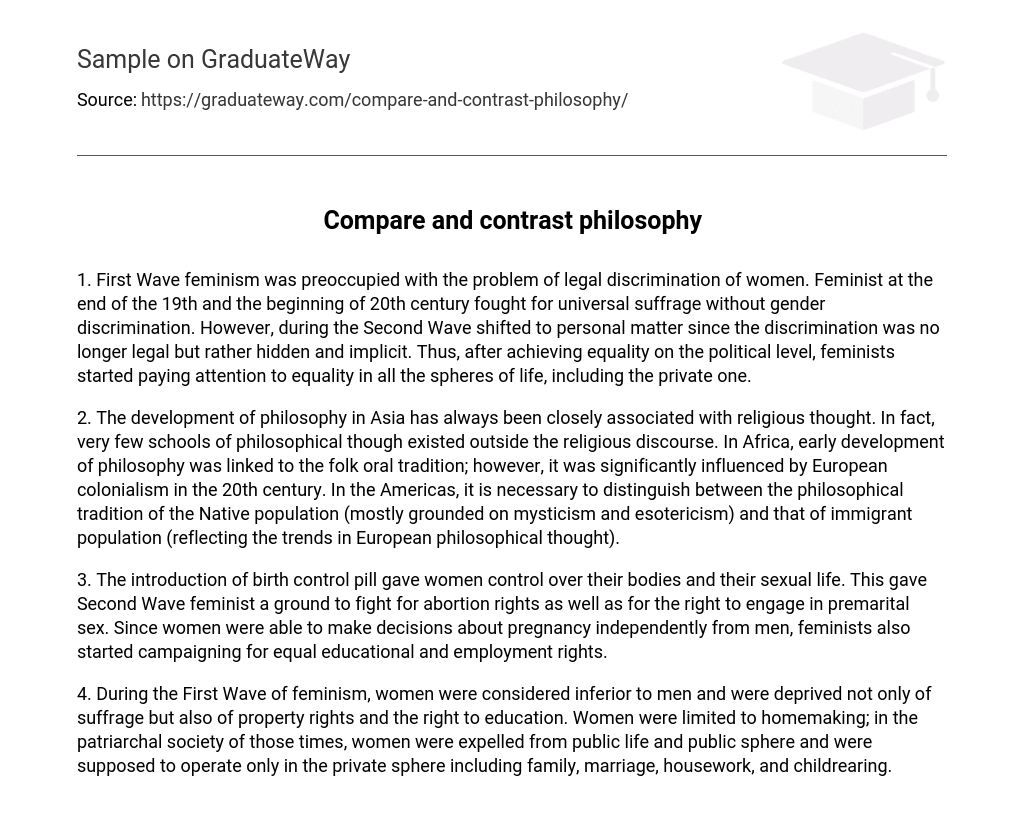1. First Wave feminism was preoccupied with the problem of legal discrimination of women. Feminist at the end of the 19th and the beginning of 20th century fought for universal suffrage without gender discrimination. However, during the Second Wave shifted to personal matter since the discrimination was no longer legal but rather hidden and implicit. Thus, after achieving equality on the political level, feminists started paying attention to equality in all the spheres of life, including the private one.
2. The development of philosophy in Asia has always been closely associated with religious thought. In fact, very few schools of philosophical though existed outside the religious discourse. In Africa, early development of philosophy was linked to the folk oral tradition; however, it was significantly influenced by European colonialism in the 20th century. In the Americas, it is necessary to distinguish between the philosophical tradition of the Native population (mostly grounded on mysticism and esotericism) and that of immigrant population (reflecting the trends in European philosophical thought).
3. The introduction of birth control pill gave women control over their bodies and their sexual life. This gave Second Wave feminist a ground to fight for abortion rights as well as for the right to engage in premarital sex. Since women were able to make decisions about pregnancy independently from men, feminists also started campaigning for equal educational and employment rights.
4. During the First Wave of feminism, women were considered inferior to men and were deprived not only of suffrage but also of property rights and the right to education. Women were limited to homemaking; in the patriarchal society of those times, women were expelled from public life and public sphere and were supposed to operate only in the private sphere including family, marriage, housework, and childrearing.





